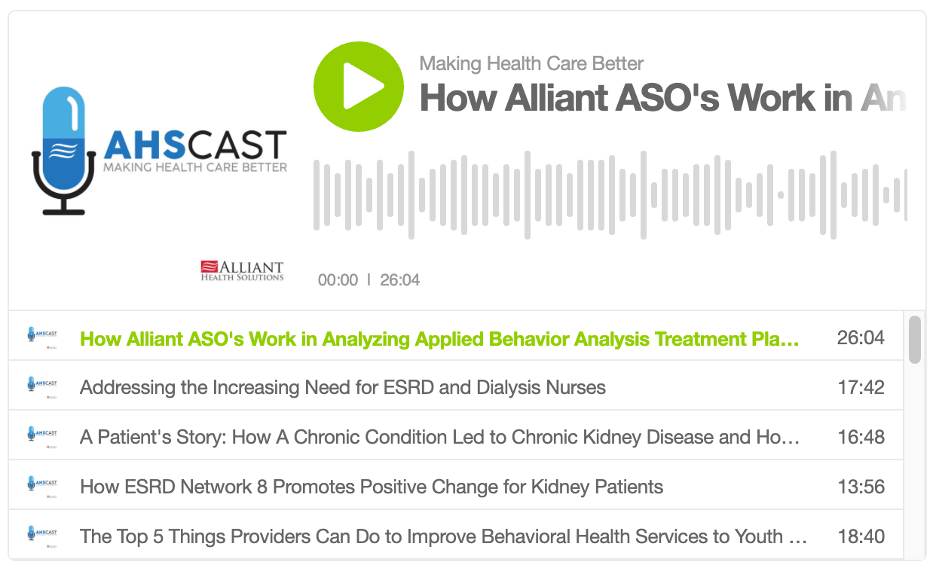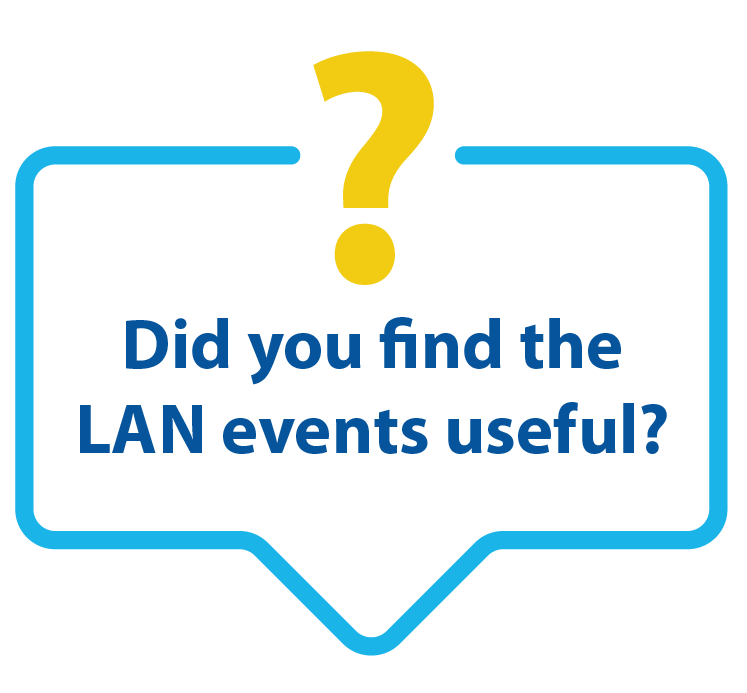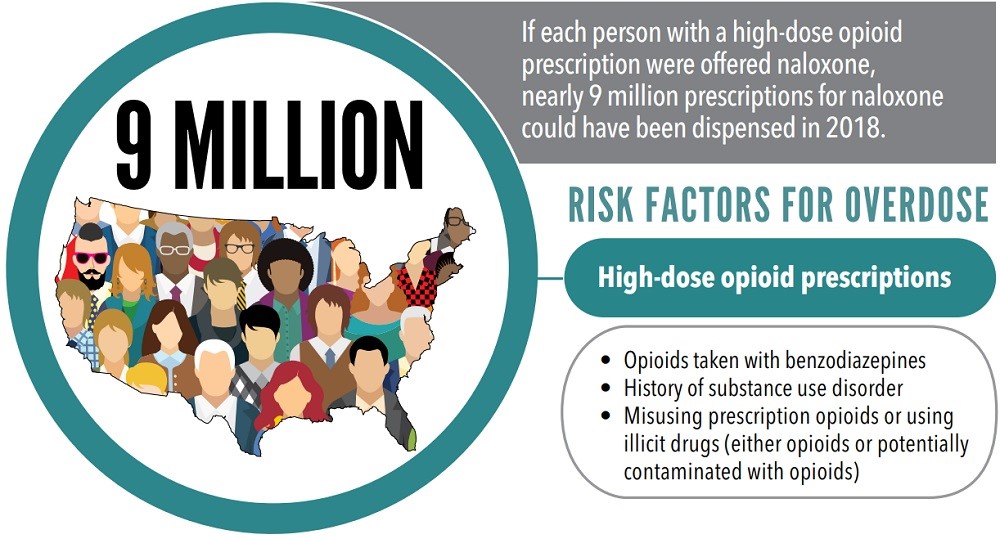|
|
|
|
Please share this email with friends or colleagues using these links:           
(Please do not forward the email as it may impact your subscription settings)
|
|
A monthly newsletter highlighting events and resources for Nursing Homes & Community Coalitions
In This Issue:
|

CMS Reminds Eligible Consumers They Can Get a COVID-19 Booster Shot at No Cost
Following the U.S. Food and Drug Administration’s recent action that authorized a booster shot of the Moderna and Johnson & Johnson COVID-19 vaccines for certain populations and a recommendation from the Centers for Disease Control and Prevention (CDC), the Centers for Medicare & Medicaid Services (CMS) is reminding eligible consumers that coverage is available under Medicare, Medicaid, Children's Health Insurance Program and in the commercial health insurance market for this critical protection from the virus, including booster shots from all three manufacturers, without cost sharing. Learn More
CMS Launches New Tool to Compare Nursing Homes Vaccination Rates
CMS is making it easier to check COVID-19 vaccination rates for nursing home staff and residents with a new feature on Medicare.gov. The tool makes vaccination data available in a user-friendly format to help people make informed decisions when choosing a nursing home for themselves or a loved one. CMS and the CDC use this data to monitor vaccine uptake among residents and staff and identify facilities that may need additional resources or assistance to respond to the pandemic. Click Here for This Week's COVID-19 Nursing Home Data
|
|
|
|
Our team is collecting and curating the essential trainings, events, resources, and vaccine updates about COVID-19 on our website so you can visit one page to find the information you need. We've also outlined the essentials below.
View All COVID-19 News & Resources
Training & Resources
- Putting COVID-19 Numbers and Vaccinations into Context – This presentation and video helps explain the risks of COVID-19 relative to other events such as lightning strikes, tornadoes, traffic fatalities, etc. and illustrates the impact that COVID-19 vaccinations have on reducing risks. Get the Presentation and Videos
- CMS Targeted COVID-19 Training for Frontline Nursing Home Staff & Management (Free Training) Learn More
- CMS-CDC Fundamentals of COVID-19 Prevention for Nursing Home Management Learn More & Register | Download Infographic
Staffing Resources and Guidance
Check out this CDC website designed to enhance the frontline public health capacity in state, local, tribal and territorial health departments to intensify the coordinated response to COVID-19. View the Website
COVID-19 Myths and Facts
Bust common myths and learn the facts about the COVID-19 vaccine on the CDC website. Visit the Site
Vaccine Updates
United Against the Flu: American Hospital Association Campaign
Keep the flu vaccine top of mind for patients with the United Against the Flu campaign. Messaging materials include a toolkit, social media images, hospital stories, fact sheets and more. Created by the American Hospital Association, this campaign is a collaborative effort by several national health care organizations in coordination with the CDC. Visit the Site
Immunizations
- CDC Adult Vaccine Assessment Tool – Adults complete a questionnaire, and the results will tell them what vaccines are needed, ranging from the influenza vaccine to the shingles and Hepatitis A vaccines. The CDC does not retain personal information entered on the questionnaire and it applies to adults 19 years or older. The CDC recommends vaccines for adults based on age, health conditions, job and other factors. View the Assessment Tool
- When You've Been Fully Vaccinated: How to Protect Yourself and Others View CDC.gov
- CDC Vaccine Finder Download Flyer | Visit VaccineFinder.org
- CDC Community Guide on Increasing Vaccine Uptake in Racial & Ethnic Minority Communities View Guide
- CDC Best Practice Guide on COVID-19 Vaccine Equity for Community & Faith Based Organizations View Guide
- CDC Ranks States by COVID-19 Vaccines Administered View Daily Data Tracker
We Can Do This: HHS Campaign to Increase COVID-19 Vaccine Confidence
The U.S. Department of Health and Human Services created a nationwide COVID-19 public education campaign to increase public confidence and uptake in COVID-19 vaccines while reinforcing basic prevention measures such as wearing masks and social distancing. Through consistent, fact-based public health messaging, the campaign helps the public make informed decisions about their health and COVID-19, including steps to protect themselves and their communities. The public education activities are organized around three themes:
- Slow the Spread: Basic prevention measures that should be taken while waiting for the vaccine
- Building Vaccine Confidence: Information and resources to build vaccine confidence, timed to support action when vaccines are available
- Preparing the Nation: Fact-based, scientific information about vaccine development, safety and effectiveness
Download Campaign Resources and Toolkits
|
|
|
Leadership Lessons
Words of advice from leaders on the front lines.
This month’s leadership lesson is from Karen Little, AHS Targeted Response QII Lead.
How to Practice Gratitude Every Day
As the Thanksgiving holiday approaches, I am reminded of this quote:
“Cultivate the habit of being grateful for every good thing that comes to you, and to give thanks continuously. And because all things have contributed to your advancement, you should include all things in your gratitude.” — Ralph Waldo Emerson
These are some of the lessons that gratitude has taught me that, and I will share this with you:
- Gratitude brings peace and joy. When we think of all that we have accomplished and overcome, we will realize how each day is a blessing.
- Gratitude brings contentment. Being thankful is the key to contentment when we realize what we have is more than enough.
- Gratitude helps us to be present. Jim Elliot penned, “Wherever you are, be all there!” That can be challenging at times, but being grateful helps because it opens our eyes to the beauty of nature.
The past two years have been an emotional rollercoaster for each of us. Distressing news, people dying, job loss, rising food prices, higher prices at the pump, the stress of COVID—the list could seem endless if I were to continue. But in the midst of it, we are still here, and we should all be thankful.
How can you show gratitude every day? By taking time out of our busy lives to pause and reflect on the good moments in our lives. I discovered that the good always outweighs the bad, and there is always something to be grateful for. An attitude of gratitude should be our norm. Why? Because it is a gift that we can freely give away every day.
Continue Reading on our Website
Best Practice Corner
Each month Alliant Health Solutions collects exemplar practices from organizations across the seven-state region. Thank you for your leadership, creativity, and perseverance.
Alabama Chart Explains Mixed Dosing of COVID-19 Vaccine Boosters
The Alabama Department of Public Health created a chart explaining mixed dosing for COVID-19 boosters. View the Chart
NCDHHS Expands Its Vaccine Dashboard To Show Vaccination Data by Race and Ethnicity
The North Carolina Department of Health and Human Services expanded its vaccine data dashboard to provide more statewide demographic data for COVID-19 vaccinations. Users can see vaccination rates by race for age groups and ethnicity for age group. The information is displayed on a new tab named “Additional NC Demographic Data” on the dashboard. View the Dashboard
Tennessee Shares Things They’ve Learned Since the Pandemic
The Tennessee Department of Health shared five things they’ve learned in the past year and a half on how to manage the COVID-19 pandemic. Read their Blog
Louisville Offering a Million Free Home COVID-19 Rapid Tests to Hardest-Hit Areas
On Oct. 12, the Mayor of Louisville, Ky., announced a new initiative, “Say Yes to the Test,” the city’s largest effort to reduce the spread of the COVID-19 virus. The city will be offering a million free home COVID-19 rapid tests to hardest-hit areas. Houses in 16 zip codes in the metro can get eight kits a week, allowing four household members to take two COVID-19 tests per week. Learn More
Do you have a promising practice to share? Please reply to this email and we will feature you in an upcoming issue.
|
AHSCAST - Making Health Care Better
 |
Everyone deserves quality health care.
Tune into the Alliant Health Solutions Making Health Care Better podcast every other Thursday as they interview guests committed to making health care better. If you are a health care consumer, provider, insurer, system or consultant, this is the podcast for you. View All Podcast Episodes |
|
Events
|
Upcoming Learning & Action Network (LAN) Events
-
Combined Community Coalitions and Nursing Homes: Organizational Trauma, Resiliency and the Holidays
Tuesday, November 18 at 12:30 p.m. ET / 11:30 a.m. CT (30 min.)
The holiday season adds another layer of complexity to leading teams working to build resilience and establish a new normal. Join our conversation as we talk about approaches and resources for successfully leading, recognizing and supporting teams through and beyond the holidays.
Register Now | View Agenda
Last Month's Learning & Action Network (LAN) Events
- Nursing Homes: Practicing Antibiotic Stewardship in the Detection and Treatment of UTIs
Recorded on October 19, 2021
Urinary tract infections in nursing homes impact patient and resident quality of life, quality measures and readmissions. In this webinar, our physician speakers discussed current best practices around recognition, diagnosis, prevention and antibiotic stewardship.
View Recording | View Slides
- Community Coalitions and HQIC: Applying a Framework to Advance Health Equity
Recorded on October 26, 2021
Advancing health equity requires a multifaceted approach. Learn about the Brooks PETAL Framework and how to use the framework as a guide for integrating a community driven approach to health equity into our work.
View Slides

Were You Able to "Use Tomorrow" What You Heard During the LAN Events?
If Yes, Click Below.
Nursing Homes LAN Attendees: Click here
Community Coalition LAN Attendees: Click here
Previous COVID-19 Event
Upcoming Infection Prevention Shop Talks
- November 2021 Shop Talk Call
Thursday, November 18 at 2 p.m. ET / 1 p.m. CT (60 min.)
Find out about updates and support for surveillance, tracking and infection prevention in nursing homes using the National Healthcare Safety Network (NHSN). This webinar is focused on submitting COVID-19 data but may include other components such as C.diff, UTIs and hand hygiene.
Register Now
View Previous Shop Talks
Join the Alliant Quality NHSN Group!
Joining the group and conferring rights to Alliant Quality to view NHSN data allows for seamless support and technical assistance.
View Step-By-Step Guide
Alliant Health Solutions is Discontinuing Use of Alliant Quality
On Nov. 1, Alliant Health Solutions officially discontinued use of the Alliant Quality name, logo and brand. Alliant will now use the Alliant Health Solutions name, logo and brand in mention of all QIN-QIO work.
So what has changed?
- Website visitors who visit https://www.alliantquality.org/ are now redirected to quality.allianthealth.org.
- Our social media channels (Facebook, Twitter, YouTube) now have the Alliant Health Solutions logo.
- All of our materials and collateral will have the Alliant Health Solutions logo.
If you produce any collateral or presentations using our logo, CLICK HERE to download the Alliant Health Solutions logo for official use.
|
Resources
|
|
Pandemic Created a Record High Number of Drug Overdose Death
The Covid-19 pandemic has impacted America in numerous ways. One of those ways can be seen in recent opioid-related overdose data. A record high of 96,779 drug overdose deaths occurred between March 2020 and March 2021, representing a 29.6% rise, according to the CDC's National Center for Health Statistics. However, the numbers are provisional, and the CDC's estimate for predicted deaths totals more than 99,000 from March 2020 to March 2021, CNN reported. impacted America in numerous ways. One of those ways can be seen in recent opioid-related overdose data. A record high of 96,779 drug overdose deaths occurred between March 2020 and March 2021, representing a 29.6% rise, according to the CDC's National Center for Health Statistics. However, the numbers are provisional, and the CDC's estimate for predicted deaths totals more than 99,000 from March 2020 to March 2021, CNN reported.
Naloxone saves lives! Ask your doctor or pharmacist for a naloxone prescription if you are a loved one are taking high-dose opioids or have a substance use disorder. Find Sources for Naloxone and Other Harm Reduction Resources Here
 |
Access FREE expert guidance on this topic: Contact Tanya Vadala |
|
|
ECHO-Care Transitions Reduces Patient Readmissions from Skilled Nursing Facilities, Reduces Length of Stay
ECHO-Care Transitions (ECHO-CT) intends to ensure continuity of care and alleviate the risk of patient safety issues, notably medication errors, occurring because of hospital transition. With funding from the Agency for Healthcare Research and Quality (AHRQ), Beth Israel Deaconess Medical Center adapted Project Extension for Community Healthcare Outcomes (ECHO) to connect receiving multidisciplinary skilled nursing facility (SNF) teams with a multidisciplinary team at the discharging hospital. Within one week of discharge, hospital providers discuss each patient’s transitional and medical issues with providers at the SNF using videoconferencing technology. The innovation has successfully reduced patient readmission and SNF length of stay. Read More

|
Essential Resources to Help You Navigate NHSN
Update: Weekly COVID-19 Vaccination Data Reporting & Training
Beginning August 23, report health care personnel and residents who are eligible to receive the COVID-19 booster (additional vaccine).
Training slides (reference slides 9 & 20-23)
Who is eligible for the booster? Reference the CDC website for current considerations for use of an additional COVID-19 dose.
Watch Our NHSN Shop Talk Shorts Series!
We know you're busy. Our new video series answers the most common questions we receive regarding navigating NHSN in a brief way. Available videos cover the following topics:
View NHSN Shop Talk Video Series
|
 |
Access FREE expert guidance on this topic: Contact Melody Brown |
|
|
New Million Hearts Campaign Focuses on Heart Health During the Pandemic
Help patients 55-years-old and older stay on track with healthy habits during the pandemic with the Start Small. Live Big. campaign from the CDC Foundation's Alliance and Million Hearts. This effort will feature video PSAs, social media ads, influencer promotions and collaboration with community partners to remind patients to make a care plan with a doctor, get active, eat healthy and be a role model. New data shows 66% of U.S. adults are concerned that the pandemic is getting in the way of their healthy habits, increasing risk for heart disease and other health conditions. This campaign encourages adults to take small steps to get back to living big. Learn More
AHRQ’s EvidenceNOW Initiative Leading Improvements in Heart Health
AHRQ launched the EvidenceNOW: Advancing Heart Health initiative in 2015 to assist primary care practitioners in implementing improvements in the quality of health care with heart health as a primary focal point. Seven regional cooperatives were formed to provide quality improvement assistance and supportive services to help primary care practitioners adopt evidence-based practices to drive improvements in health care for better patient heart health. More than 5,000 clinicians from over 1,500 small- to mid-sized primary care practice settings were engaged in the initiative with a service reach of around 8 million patients served.
The practices participating in EvidenceNOW: Advancing Heart Health saw an increase in the number of quality improvement strategies used to advance their care techniques, enhanced capacity for quality improvement and practice facilitation. When compared to other practices not participating in the initiative, the EvidenceNOW practices noticed significant advancements in the quality of heart health services and positive outcomes, such as increases in screening for smoking, smoking cessation counseling, cholesterol management, blood pressure control and improvements in the prescribing aspirin for eligible patients according to best practices. Learn More
|
|
Advancing Health Equity: Resources to Build an Organizational Response to Health Disparities
CMS published several resources to support organizations in developing of organizational plans to advance health equity. The Guide to Developing a Language Access Plan provides a framework for developing language access plans to ensure persons with limited English proficiency have meaningful access to programs and materials. Access can also be a challenge for individuals with visual or hearing impairments. The Audio Sensory Disabilities Brochure and Visual Sensory Disabilities Brochure provide information on challenges and points of contact to consider when developing strategies such as appointment scheduling, security/information desk, reception, paperwork, examination rooms and pharmacies.
Successfully Coping with Holiday Stress: Strategies for Health Care Workers
Health care frontline staff often find themselves juggling both the joys and stresses of the holidays while providing emotional support to patients separated from their loved ones and missing holiday traditions. Philip R. Magaletta, Ph.D., and Christina Dean, Ph.D., in their article published in December 2020 on Health.mil, the official website of the military health care system, describe strategies that apply to both civilian and military health care workers. The self-care strategies include planning and engaging in healthy escapes, recalling and refocusing on your work’s rewards and benefits, and identifying and maintaining nurturing relationships. Read the Article. For more information, join our upcoming LAN on resiliency and the holidays.
Micro Grant Funding Opportunity: National COVID-19 Resiliency Network
The National COVID-19 Resiliency Network (NCRN) Community Engagement Core is happy to announce the third round of funding opportunities for the Regional Community Coalition micro grant. We are now inviting non-profit community-based organizations to submit proposals to apply for funding. The proposal must detail a program(s) designed to connect racial and ethnic minorities to COVID-19 mental health resources and services to help individuals and communities become more resilient and promote strategies for improved mental and emotional health. Apply for the Grant
Important dates to note:
- Deadline for submitting applications: Wednesday, Nov. 10 at 11:59 p.m. EST
- Decisions will be announced: on or before Nov. 22
- Grant period: Jan. 15, 2022 – March 15, 2022
- NCRN will fund up to five $10,000 grants among the 10 Health and Human Services U.S. regions. NCRN expects to have one awardee per region but may award more per region depending on the number of applications received. For questions, email NCRN at ncrn@msm.edu or Stacy Hull, Alliant NCRN program director, at stacy.hull@allianthealth.org.
Alliant Health Solutions is a strategic partner in the NCRN.
|
New Communication Checklist for Suspected Urinary Tract Infections Available
The incidence of symptomatic urinary tract infections (UTIs) continue to comprise a significant proportion of infections manifesting in long-term care facility residents, and results in a large amount of antibiotic use. Alliant has developed a checklist to provide a framework for change in condition communication when signs and symptoms associated with UTIs are identified. The checklist can help staff prepare for a change in condition conversation and can be modified to include facility specific prompts or UTI prevention strategies. The tool can also be used as part of staff orientation and training or competency with change in condition communication. Download the Checklist | Click Here for Information on the NHSN Healthcare-Associated Infection Surveillance Protocol for UTI Events for Long-term Care Facilities
Go to the Hospital or Stay Here? A Decision Guide for Patients, Families, Friends and Caregivers
Alliant has released several new tools to support nursing homes in the implementation of the Hospital Decision Guide. A new five-minute video provides an overview of the decision guide website and the available tools and resources. The Pre- and Post-test with Answer Guide is an efficient way to document staff training, and it can be used as part of orientation and annual competency educational training. The new tools compliment previously released Alliant tools and resources, including a sample PDSA worksheet for implementing the guide as a QAPI project and a recorded webinar featuring Dr. Ruth Tappen. Access New Tools and Resources
#everyBODYmoves COVID-19 Free Resources
The Johns Hopkins Activity and Mobility program, #everyBODYmoves, offers free downloadable resources to help foster a culture of mobility in institutions as we face unique challenges related to COVID-19. The resources include mobility evaluation tools and informational flyers targeted to patients and providers that can be printed as large as a poster size or used digitally as screen savers or slideshows. These resources are available for download and use under a creative commons license. Download Resources
|
Members of the Beneficiary & Family Advisory Council are our partners in making health care better. To join us in this important work, contact Mel Brown or submit this referral form.
Browse resources our council has worked on below:
Rural Aging in Place Toolkit
The Rural Aging in Place Toolkit compiles evidence-based and promising models and resources to support organizations implementing aging in rural communities across the United States. Get the Toolkit
How Will DSMES Help Me?
Diabetes Self-Management Education and Support (DSMES) services help people with diabetes learn how to take the best care of themselves. Ask your doctor for a referral to DSMES services to help you manage your diabetes. Learn about DSMES
|
For archived issues:
Visit the News & Announcements section of the Alliant Health Solutions website.
 |
For more information about Alliant Health Solutions:
www.quality.alliantquality.org
Share this email with a friend or colleague:  
|
Connect with us!
    Click here if you'd like to share your corporate profiles with us and we'll connect with you!
Click here if you'd like to share your corporate profiles with us and we'll connect with you!
|
 |
|
|
|
|